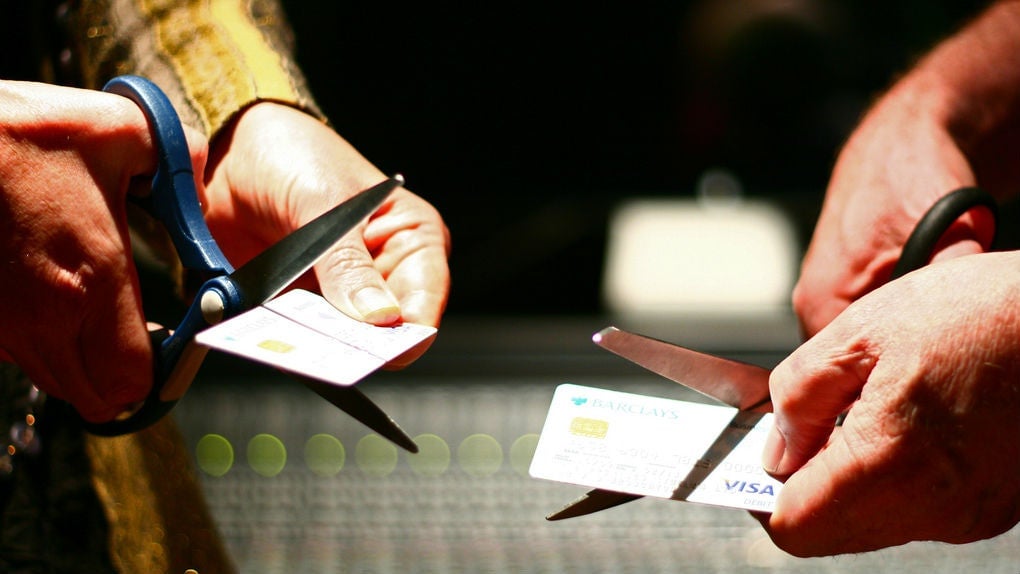Brits walk out on high street banks
Earlier this year Louis Brooke and some friends were sitting in a London pub bemoaning the scandal-ridden state of the world’s biggest banks. At the end of the night, everyone pulled out their cards to pay, all from those very same banks. We had spent three hours talking about this, says Brooke, “and now we were going to give them our money.”

Earlier this year Louis Brooke and some friends were sitting in a London pub bemoaning the scandal-ridden state of the world’s biggest banks. At the end of the night, everyone pulled out their cards to pay, all from those very same banks. We had spent three hours talking about this, says Brooke, “and now we were going to give them our money.”
The friends from various backgrounds—a marketer, a pollster, a financial services guy (Brooke), and a hard-core activist—made a plan. They would convince people to say “no” to banking greed by moving their money away from big discredited banks and over to small cooperatives and mutual banks such as credit unions and building societies.
The idea is that smaller community-based banks are more likely to have better customer service because they are owned by their members or customers rather than traditional shareholders. They’re also more likely to put their money back into local communities. Although they may not offer the same range of products or online services, some have explicit ethics policies about where the bank reinvests its money, often defined by customers.
In February the organization launched with a tiny office and a couple of volunteers and called themselves Move Your Money.
The movement is modeled in part on Arianna Huffington’s movement of the same name, also started by friends sitting around a table who were fed up with big shareholder-driven banks and their shenanigans and thought people should favor local community-based banks instead.
For the first six months of this year, some half a million people switched from London High Street banks to small community ones, according to an estimate by Move Your Money (though it doesn’t say what the rate was last year). At least some were likely persuaded by the campaign’s high-profile stunts that have captured the media’s attention. On the day bonuses were handed out at Barclays this year, the movement’s activists convinced volunteers to line up outside the bank at opening hour and walk in one after another and close their accounts. Some protestors cut up their cards outside of the bank. Similar stunts were carried out on bonus days at Royal Bank of Scotland, HSBC, and Lloyds. Brooke says it wasn’t a huge number of people, maybe 100. But it gave the press a good story, and was a wake-up call for the banks, this image of ordinary people lining up to close their accounts.
Other actions have included encouraging small shareholders to show up at banks’ annual shareholder meetings and coaching them on what to ask. In another demonstration, Move Your Money got people to write on a social media page and tweet their reasons for leaving Barclays. The comments were written on post-it notes and stuck on the outside wall of a Barclay’s branch.
In the UK it’s National Ethical Investment Week, and the movement’s volunteers are speaking at socially-responsible investment forums, and at schools and town halls. It’s still early days, but the movement’s message is being heard, says Brooke, as eight local councils (the equivalent of municipal authorities in the US) have called about moving their money to smaller banks in their own communities, while 20 student unions (with budgets of more than £1 million each) already have.
The biggest motivating factor for moving one’s money—given the time and hassle involved—is still the actions of the banks themselves. Hostility has grown following the high-profile LIBOR scandal last June involving interest rate rigging by some of the world’s biggest banks. The Co-operative Banking Group, a member-owned bank (it costs a pound to join) saw a surge of new business this past summer, with more than 100,000 people signing up for new accounts in June and July, when the LIBOR scandal was at its height, a 90% rise over the same period last year. Andy Hammerton, a spokesman from the bank, says, “Whenever there’s been bad news in the industry there has been a spike in new customers joining us.” He’s not complaining.